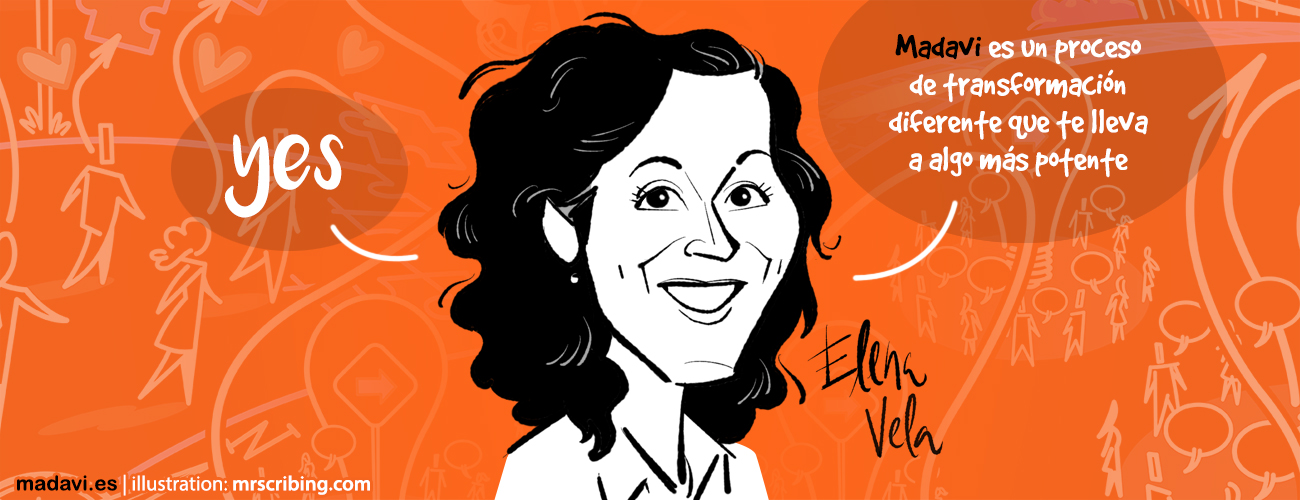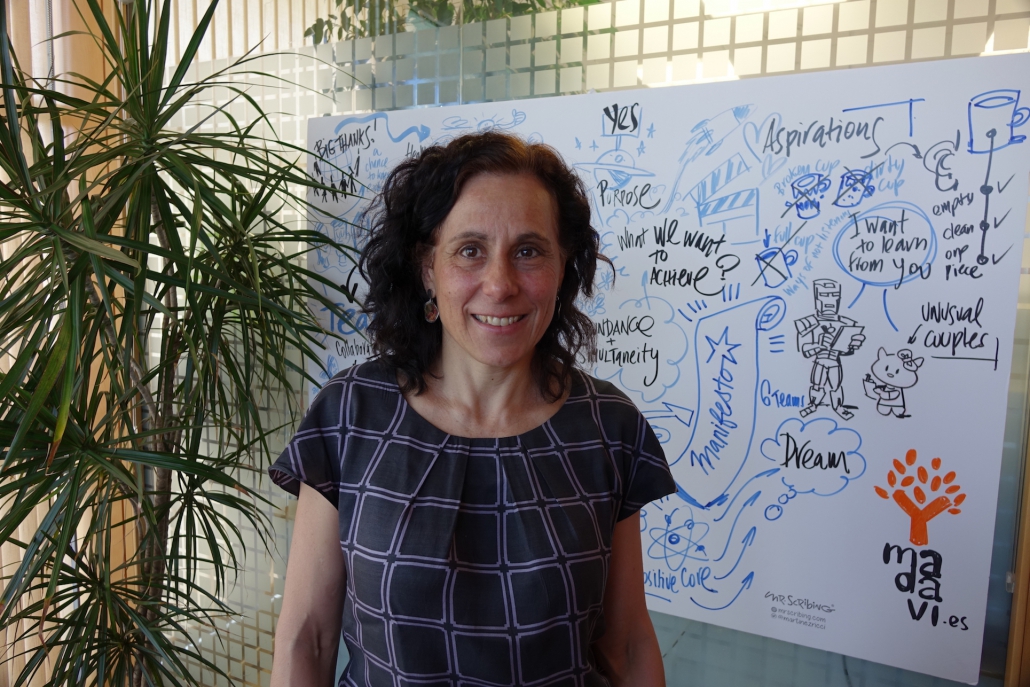We interview Elena Vela, Innovation Director – SITEX (DANONE)
SITEX is part of the global innovation team of Danone for the division of fresh dairy and vegetable products. Its principle mission is to provide technological solutions for innovation and that these innovations be robust once they are transferred to the industrial line of production.
A few months ago, this division found itself in the middle of a process of acceleration in growth, using innovation as the key lever and changing the traditional way of innovating.
To face this ambitious challenge, “ I saw the need to project ourselves in the future and construct in a collective fashion (we, who have our own ecosystem). We wanted it to be our team, including both the what as well as the how, that is to say, redefine our mission. But also to change our way of working and organising ourselves, of connecting externally; of how to improve our internal collaboration, with other teams, and how to achieve a greater visibility and a larger impact on our team and their growing contribution to innovation”, explains in this interview Elena Vela Roca, Innovation Director – SITEX.
With this challenge on the agenda, they have worked with Madavi during 5 months. “ I wanted that this process of change to involve the whole team, from the beginning to the end. Thus, the participation of the team in the whole process has been a collective one in all its phases, from conception to execution”.
According to Elena Vela a key part of the process “has been to count on the direct implication of a representation of our principle stakeholders both internally (fundamentally local innovation teams, quality, engineering and operations) as well as externally, (suppliers of ingredients and engineering…).
How do you value the methodology of the Project carried out by Madavi?
The fact that we worked on the process of the interviews from an appreciative inquiry perspective, in order to identify our stories of success, our strengths, was very motivating and re-affirmed the achievements and the high level of competence of the team.
Elena explains that “ from that point, we defined the positive Core (“what we do have”), so as to identify what works the best, what motivates us and gives us energy, and from there constructed our dream, what we do want. We visualize the future and define the areas of opportunity to reach the dream. We worked as teams on simple ideas and prototypes to convert them into projects, with their milestones and the whole group mobilised towards it, with a high level of energy and commitment”.
Why Madavi?
We had internal references on Madavi from the local innovation team of Iberia, and rather than other options I chose Madavi because –personal experience – I believe in processes based on appreciative experience, that is to say, to put the focus on our strengths to build our energising and ambitious future, as well as the integration of our community of stakeholders.
What were your expectations before starting to work with Madavi?
My expectations were to achieve the transformation necessary to face the challenges and at the same time that the road to the change would be motivating and energising for the team.
Have they been exceeded?: « We swim in abundance »
Highly exceeded; we swim in abundance, the opportunities are raining in and our connexion, both externally and internally have multiplied. And what is most important is that the team is highly involved and energised with the change.
How would you define in a single phrase your « Madavi experience?
It is going to be a YES!
“Construction based on strengths and from the principles of simultaneity and abundance, project you into a much more ambitious future and you achieve a high grade of implication and motivation on the part of the team, which is different to normal sequenced processes”, she adds.
What has this experience given you?
In it we all feel like direct actors of our futures, we see that what was posed as “dream” is occurring only a few months after the summit: there are more projects and they are more interesting; we have multiplied our internal and external connexions and increased exponentially our internal visibility within the company.
And how do you value their methodology and the “Summit format”?
I am now completely convinced that there can be no other way. The format includes all the elements for success; appreciative inquiry, with its 6 principles, allows the summit to “propel” us into the future!
Elena Vela has told us that the appreciative culture has completely penetrated her team; “it would now be necessary to extend it to the whole organisation”. To the point that that they have created a virtual community called “The Yes Community”, “in which we interexchange our progress but also other subjects or experiences within our appreciative culture with all the members of the process so as to extend to the maximum possible number of people.”.
To finish off, can you give us a preview of a Project that has been born as a result of the summit?
From the areas of opportunities which we identified when projecting the future, 5 projects were born: some more focused towards “what” (for example: how to improve our processes in order for them to be more flexible and adaptable for innovation); others were more focused towards how we worked … These projects advance and the results to date are what we hoped for, and this is because the people chose what they wanted, because they felt they had an added value to give to those projects, and they do so in a very motivated fashion”.
Elena Vela explains her impressions in this video:


